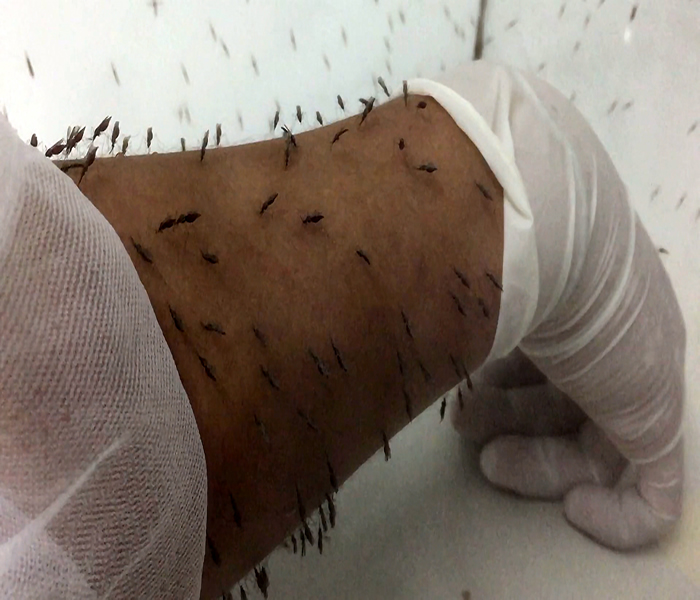Malaria
What Is Malaria?
Malaria is a serious, sometimes fatal, disease spread by mosquitoes and caused by a parasite.
The Anopheles mosquitocarries the parasite and is where the parasite starts its life cycle.
The parasite (Plasmodium) has multiple subspecies, each causing a different severity of symptoms and responding to different treatments.
Once the parasites are inside your body, they travel to the liver, where they mature. After several days, the mature parasites enter the bloodstream and begin to infect red blood cells. Within 48 to 72 hours, the parasites inside the red blood cells multiply, causing the infected cells to burst open.
The parasites continue to infect red blood cells, resulting in symptoms that occur in cycles that last two to three days at a time.
Malaria is not a communicable disease but can spread without a mosquito. Though not common but it there could be transmission from the mother to the unborn child which is know has congenital malaria, by blood transfusions, or when intravenous-drug users share needles.
Causes Malaria

Malaria occurs when a mosquito infected with one of these: Plasmodium, P. vivax, P. malariae, and P. ovale. Parasite bites you.
The time from the initial malaria infection until symptoms appear it is ranges from:
- Plasmodium (P.) falciparumis between 9 to 14 days
- P. vivax and P. ovale Is between 12 to 18 days
- P. malariae Is between 18 to 40 days
- P. knowlesi Is between 11 to 12 days
Symptoms/Signs of Malaria
The symptoms of malaria develop within ten days to four weeks following the infection.
- Anemia
- Bloody stools
- Coma
- Convulsions
- Chills
- Diarrhea
- Headache
- High fever
- Muscle pain
- Nausea
- Profuse sweating
- Vomiting
If you have symptoms of malaria, go to your doctor(it could be in Health center or Hospital), your doctor would ask you questions about how you are feeling he may order additional blood tests to confirm your diagnosis.
How to Prevent Malaria
* Apply insect repellent to all exposed skin.
*Always wash your gutter.
*Covers most of the exposed skin and shoes that are closed can reduce the risk of bites.
* Do not keep dirty water in and around your house
*In addition, treating clothes with insecticides can prevent bites even further.
* Keep all your environment/Surrounding clean at all times
*Sleeping under a mosquito net may help prevent being bitten by an infected mosquito.
*Using bug sprays/insecticides containing DEET
* All clothing should be tucked in, and pants should be tucked into socks to avoid exposure around the ankles.
After the early stages, life-threatening complications may develop rapidly with P. falciparum and P. knowlesi. If the infected person is not treated, serious complications or death can occur.
Treatment for Malaria
Treating malaria has become much simpler and easier with the discovery of effective medicines and undoubtedly medicines are the first option to treat the illness.Note: The types of drugs and the length of treatment depend on:
- Which type of malaria parasite you have
- The severity of your symptoms(how serious are the signs)
- Your age (Are you a Baby, young Adult or Old?)
- Whether you're pregnant
Malarial drugs include:
- Combination of atovaquone and proguanil (Malarone)
- Chloroquine (Aralen)
- Hydroxychloroquine (Plaquenil)
- Mefloquine
- Quinine sulfate (Qualaquin)
Malaria Home Remedies/Home Cure
Artemisia Annua
Artemisia annua, also known as sweet wormwood is one of the most effective natural remedies for malaria. The herb has to be steeped in cold water, and the water should be consumed directly in order to get optimum results.
Cinnamon
Cinnamon is a valuable remedy for treating malaria. One teaspoon of powdered cinnamon should be boiled in a glass of water with a pinch of pepper powder and a teaspoon of honey. This needs to be taken every day which is a beneficial medicine for malaria.
Click here to read Natural Therapy for Malaria




